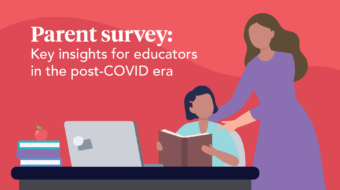When it comes to determining which therapy services a student with autism spectrum disorder (ASD) may benefit from, specialists are quick to jump to applied behavior analysis (ABA). While some research supports ABA, there are other approaches to treatment like Dr. Barry Prizant’s Uniquely Human approach that help students as well. And what about other disorders students with ASD may have such as speech and language disorders?
After the American Speech-Language-Hearing Association (ASHA) asked the U.S. Department of Education’s Office of Special Education Programs (OSEP) to review how districts were evaluating students with autism, OSEP interviewed experts and collected anecdotal evidence from state departments, to find that:
“a growing number of children with ASD may not be receiving needed speech and language services, and that speech-language pathologists and other appropriate professionals may not be included in evaluation and eligibility determinations under the Individuals with Disabilities Education Act (IDEA), Part B, or in meetings to develop the individualized education program (IEP) or individualized family service plan (IFSP) under both Parts B and C of IDEA.”
Translation: Students with ASD aren’t getting all of the support they need and speech-language pathologists (SLPs), occupational therapists (OTs) and other related services professionals are not always involved in the evaluation and intervention processes for students with ASD, even though they are required by law to be involved. To remind school districts of this, OSEP issued a “Dear Colleague” guidance letter to state Departments of Education early last month.
In the guidance letter, OSEP Director Melody Musgrove outlined the following requirements under IDEA Parts B and C:
- States and their public agencies must provide free appropriate public education (FAPE) to children with disabilities (Part B)
- States must provide children with early intervention services as identified by the IFSP team (Part C)
- Evaluations must identify the child’s level of functioning in cognitive development, physical development including vision and hearing, communication development, social or emotional development and adaptive development (Part C)
- The public agency must ensure the child is assessed in all areas related to the suspected disability as appropriate (Part B)
- The IFSP team must include the specialist involved in conducting the child’s evaluation and assessment in all meetings, while the IEP team must include an individual who can interpret the instructional implications of the child’s evaluation results (Part C)
Providing therapy, conducting evaluations and participating in IFSP and/or IEP meetings for an entire caseload of students is difficult, but what happens in districts that have a shortage of SLPs or OTs – or even worse, those districts that are not able to staff these specialists at all? Students continue to go without services, which directly affects student achievement and overall development.
To better distribute the caseloads of on-site therapists, or to equip districts with therapists they do not have, many districts are turning to telepractice, also known as online therapy. With this mode of delivery, students have access to live therapy tailored to their unique needs by a highly qualified therapist. PresenceLearning’s online SLPs, OTs and mental health professionals work directly with districts’ special education department personnel to conduct evaluations, provide individualized or small group therapy sessions and make treatment recommendations during IFSP or IEP meetings. Many districts see just as much student progress, if not more, with online therapy.
With online therapy, districts have more capacity to meet all requirements under IDEA and ultimately better serve their students with special needs.
To read the Dear Colleague letter in its entirety, click here. To learn more about the expert interviews and anecdotal evidence that led OSEP to draft and release the guidance letter, stayed tuned to our blog.



